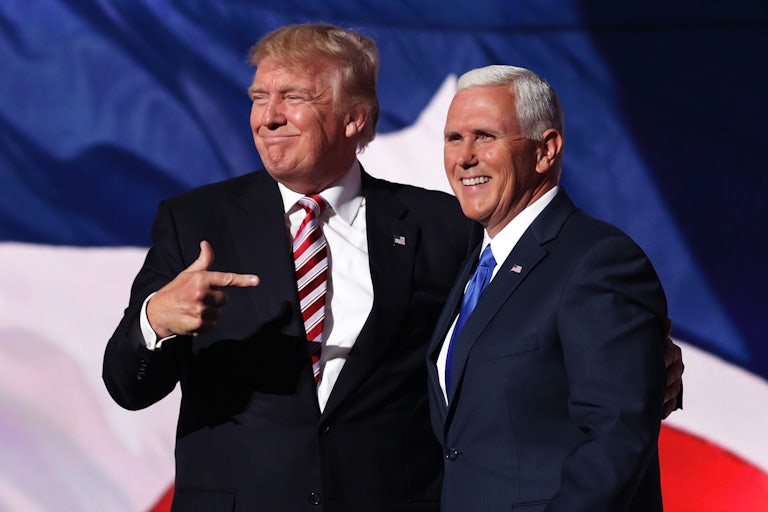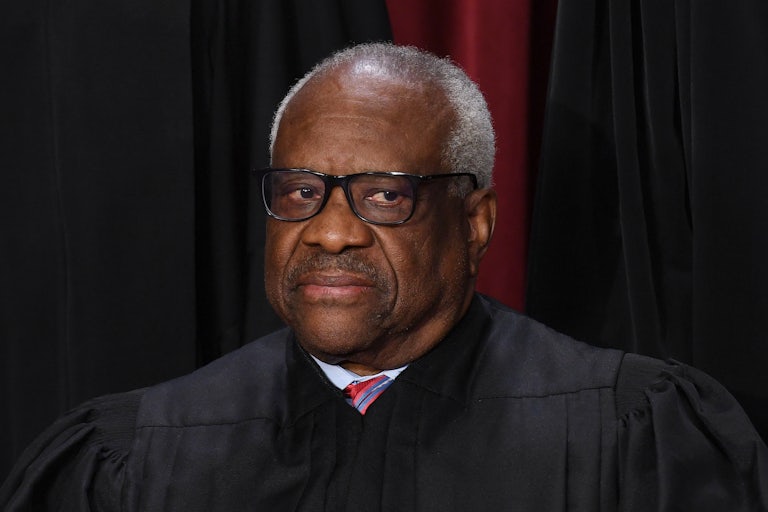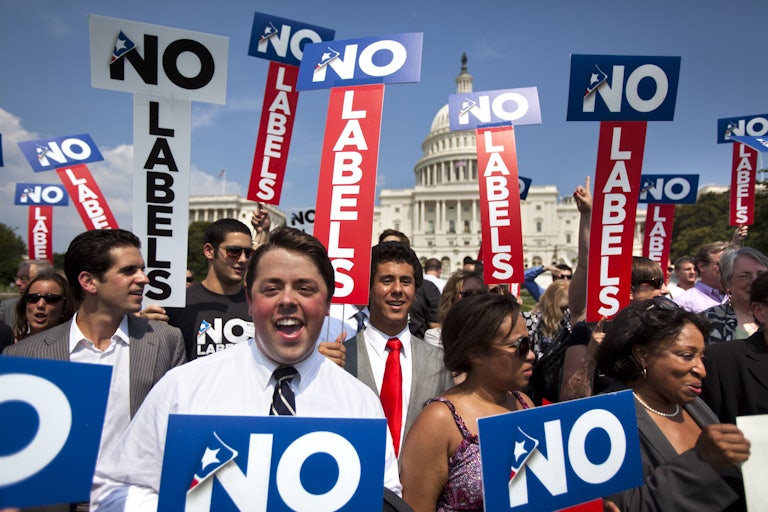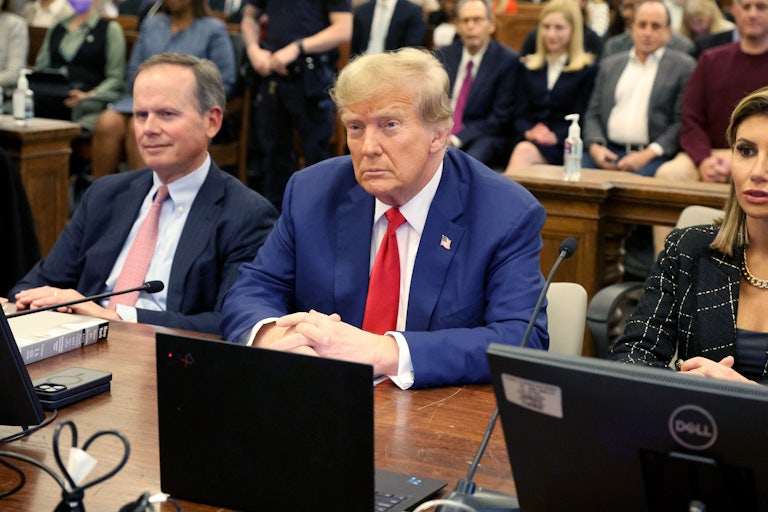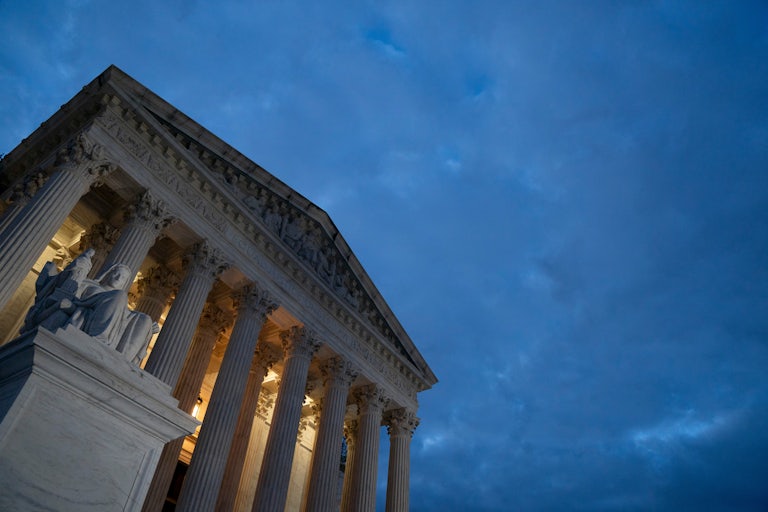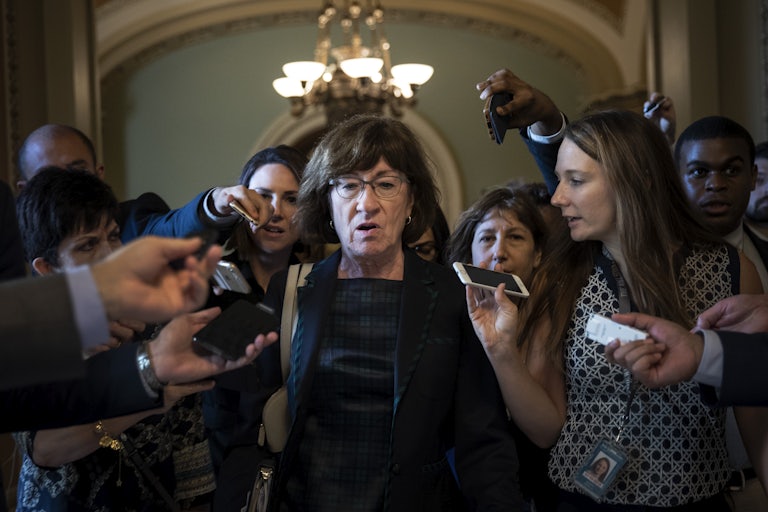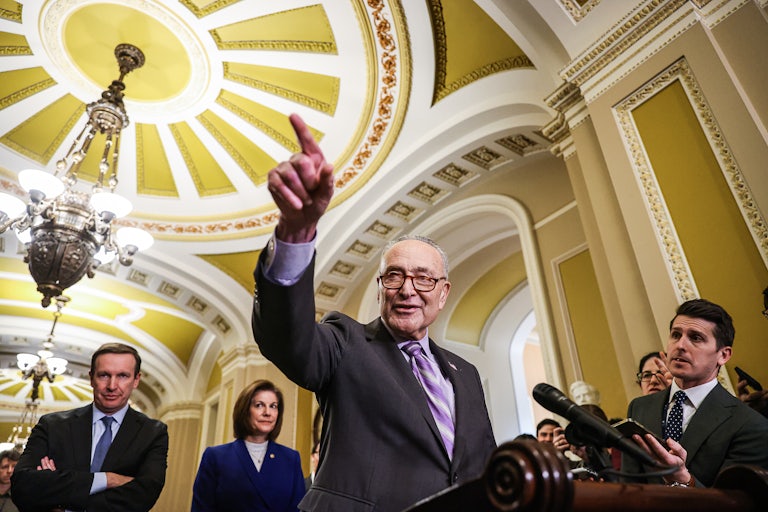Trump’s Diabolical Plan for the Federal Workforce
Trump’s reelection would mean a radical transformation of the civil service. Democrats need to raise the alarm.
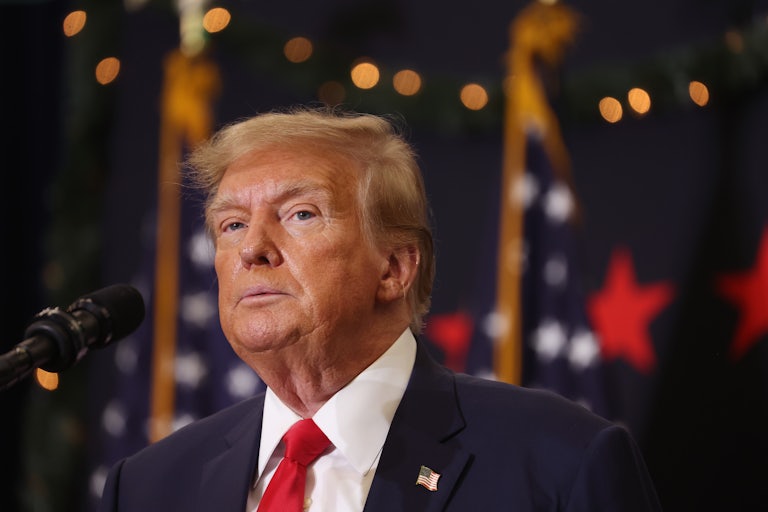
Just when Donald Trump thought he had put his latest weird controversy behind him, the son of the late Senator John McCain dragged it back into the news. This week, Jimmy McCain, who followed his father into military service, announced that he was all in for Kamala Harris, going so far as to register as a Democrat for the upcoming election. The catalyzing event for McCain was a scandal that made huge news last week: the Trump campaign’s bizarre attempt at a publicity stunt at Arlington National Cemetery on August 26, which ended in an altercation between members of his campaign staff and an official at the cemetery, who attempted to enforce a rule barring cameras in one section of the grounds.
The fracas spurred a weeklong festival of potshots, recriminations, and—as with all things Trump—the specter of political violence, as the official who ran afoul of Trump’s campaign thugs was left fearful of retaliation. It was all too much for McCain fils, who referred to the Trump team’s actions as a “violation.” As true as that may be, the whole hullabaloo is also quintessential Trump—and perhaps the best example of how he will rule in a second term: as a bully, bent on pushing around, publicly maligning, and punishing those who earn their living in public service.
This is no mere supposition on my part. It’s no secret that Trump and his GOP allies plan to radically reconceive the federal workforce into an engine of personal gain and retribution. Indeed, it was a latter-day plan of Trump’s first term that never ended up coming to fruition: In October of 2020, he issued an executive order that would have recategorized a wide swath of the civil service under something called “Schedule F,” giving Trump broad leeway to apply political loyalty tests to executive branch employees and fire those who could not pass them.
Trump was unable to fully implement this design, and President Joe Biden was swift to rescind the order upon taking office. But Trump and his allies—notably the far-right weirdos of the Peter Thiel Extended Universe, which includes vice presidential hopeful J.D. Vance—dream of purging the federal government of anyone who isn’t a true MAGA believer and bringing back a souped-up spoils system that would transform the government into an engine of retribution.
Trump learned during his first term that the federal workforce was often a de facto blockade against his corrupt designs, simply because throughout its ranks are people who follow the rules. And while purging this workforce of its dedicated lifers and replacing them with cronies and trolls won’t make the civil service smarter or more efficient, it will reduce resistance to unlawful orders and create opportunities for corruption. Currently, federal employees are protected if they refuse unlawful orders. Trump wants to change that, so that the massive federal workforce might be transformed into the fist of an authoritarian president.
In particular, attorneys are a big focus of Trump’s plans, because these are the referees who tell government managers and political leaders which potential actions are either illegal or unauthorized. If these civil servants are dispensed with and replaced with flunkies, not only will there be no one left to slow a corrupt administration’s plots and schemes; the American people will lose vital advocates, sworn to uphold the Constitution. These will be replaced by revenge-minded vipers, with loyalty only to Trump, his financial interests, and his lust for revenge.
The potential for mayhem if Trump gets his way with the federal workforce is boundless. As I previously wrote:
Democrats might find their Social Security or veterans’ benefits delayed or denied. They might no longer be able to obtain passports. Emergency disaster aid might flow only to those deemed loyal to the administration. Corporations that refuse to pay tribute might be punished. Transform the civil service from an open hand to a closed fist, and things get very frightening very quickly.
With this in mind, it’s not hard to see how last week’s incident at Arlington National Cemetery might have gone down under a Trump presidency. With Biden in office, rules and norms were respected, and officials at the U.S Army had a free hand to support the woman who tried to stop Trump’s team from filming in a restricted area, saying publicly that “her professionalism was unfairly attacked.” If Trump returns to office, those same officials would be risking their livelihoods for trying to uphold the law against a Trump ally—or be promoted for letting them break the law.
Trump’s plans for the federal bureaucracy have received some mainstream attention, but they’ve not jumped into the public psyche yet, despite—or perhaps because of—the pure comic-book villainy of the scheme. But there’s a lesson for Democrats here: Harris and her allies were successful in popularizing Trump’s association with Project 2025—and his faltering attempts to distance himself from it—through a literal and figurative “billboard-size” campaign. These efforts paid off handsomely.
Can Democrats repeat this success? Trump’s plans to weaponize the government are cut from the same antisocial cloth. Its proponents fit squarely within the “weird” frame that Democrats used throughout the summer. “Schedule F” has a similarly ominous name. And most importantly, these are plans that Trump and his fellow Republicans openly discuss, and which they’ve already tried to implement once. The explosive incident at Arlington Cemetery is a fitting way to illustrate the larger malevolence of Trump’s designs and get people to recognize the same thing that Jimmy McCain saw this week—that it was disqualifying.
This article first appeared in Power Mad, a weekly TNR newsletter authored by deputy editor Jason Linkins. Sign up here.

